Meet Our Speakers
The AIMS 2024 National Scientific Meeting is pleased to welcome our Keynote & Invited Speakers.
As new speakers are confirmed they will be updated here, so check back soon. Each speaker will bring a unique perspective, knowledge, and experience. So don’t miss the opportunity to hear from these leaders within their respective fields.
Keynote Speakers
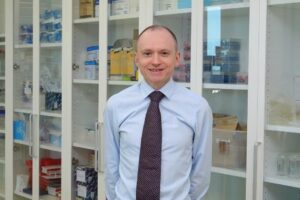
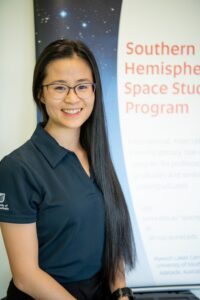


David Ross
Dr Ross is an academic haematologist working as both a pathologist and clinician with a focus on myeloid neoplasia. He trained in the former Institute of Medical and Veterinary Science in Adelaide, and holds clinical appointments in the Royal Adelaide Hospital and Flinders Medical Centre. He has co-authored >100 peer-reviewed publications and is Editor-in-Chief of Leukemia Research. He is Director of the South Australian Cancer Research Biobank and a Principal Investigator in multiple clinical trials. He is an examiner for the Royal College of Pathologists of Australasia.
Vienna Tran
Growing up in suburban Adelaide, Vienna became fascinated with the light-polluted night sky visible from her backyard. When she discovered that she could combine her passion for space with her medical degree, she went on to research the effect of artificial gravity on the hip muscles during prolonged bedrest, for which she earned a First Class Honours as part of an international team. Vienna is currently a registrar with the Australian College of Rural and Remote Medicine (ACRRM), undertaking her Diploma of Rural Generalist Anaesthetics. She has worked for the Australian Space Agency to help develop the first Applied Space Medicine and Life Sciences roadmap. She was the winner of SQLDR Lana Davies Memorial Award in 2023 for her early-career contribution to aerospace medicine. Outside her day job, you will find her giving a school talk about space, conducting medicals as the local DAME or running on the trails.
Christopher McCudden
Dr. McCudden is a Clinical Biochemist at the Ottawa Hospital in Ontario, Canada. He is a Professor and Vice Chair of the Department of Pathology & Laboratory Medicine at the University of Ottawa. He serves as the Deputy Chief Medical Scientific Officer and Medical Director of Informatics and Information Technology for the Eastern Ontario Regional Laboratory Association. He serves as Board Secretary for the Association for Diagnostics and Laboratory Medicine. Dr. McCudden’s academic interests include automated chemistry, data analytics & machine learning, quality improvement, plasma cell dyscrasias, and audit and feedback for laboratory stewardship.
Mark Shephard
Mark brings over 25 years of experience involving pioneering and innovative translational research of POC testing models for chronic, acute and infectious diseases into rural and remote First Nations health services at both national and international levels; he also has significant expertise in POC testing device evaluation and training and quality management systems, as well as leadership in the development of university teaching programs on POC testing at undergraduate and postgraduate level. Mark’s International Centre for Point-of-Care Testing was formally designated as WHO Collaborating Centre in January 2017 and redesignated for a further four-year term in January 2021.
Mark has authored over 100 peer-reviewed published papers, book chapters and Government reports in the national and international literature and is principal author and editor of the book A Practical Guide to Global Point-of-Care Testing (published in November 2016).
Mark is a Founding Fellow in the Faculty of Science of Royal College of Pathologists of Australasia (RCPA) and he received a Distinguished Alumni Award from Flinders University in 2009 for ‘significant contributions to the improvement of Aboriginal health in Australia and for services to the University’. Mark is a dual recipient of a Medal of the Order of Australia (OAM) (2006) and an Australian of the Year Award (2004), with both awards recognising his contribution to medical research through POC testing. In 2022, he was awarded the title of Matthew Flinders Professor at Flinders University.
Invited Speakers
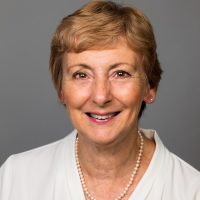
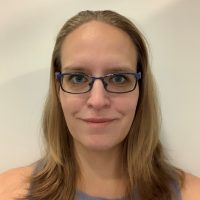

Robyn Wells
Jackie Daley
Genghis Lopez
After completing her studies and traineeship, Robyn worked in the three major laboratories in Tasmania. Her interest in malaria and haematology morphology was further heightened by six months working in Saudi Arabia, where red cell disorders in particular, were prevalent. After moving back to Brisbane in 1995, she worked in the haematology and cytogenetic section at the RBWH, and simultaneously working at PCH, QUT and SNP. Robyn has conducted many successful malaria and haematology morphology workshops over the years, helping to improve the diagnostics skills of medical scientists throughout Australia. She is passionate about continuing education and professional development, which is reflected in her role as a scientific meeting organiser and past President of the Australian Institute of Medical and Clinical Scientists.
.
Jackie Daley is a senior scientist in the Australian Red Cross Lifeblood Red Cell Reference Laboratory, based in Sydney NSW. With over 20 years’ experience at Lifeblood specialising in immunohaematology, she has developed a broad knowledge of blood groups and red cell antibodies. Jackie’s special interests include rare blood types and supporting Lifeblood’s Rh (Anti-D) Program. She is also a strong supporter of continuing education, currently serving as President of Australia’s National Immunohaematology Continuing Education (NICE) association.
Dr Genghis Lopez is a Senior Scientist at the Australian Red Cross Lifeblood in Brisbane. He received his PhD degree from Griffith University. He has published in Vox Sanguinis and Transfusion journals reporting novel red cell antigens, novel blood types, and red cell antibodies associated with hemolytic transfusion reactions or hemolytic disease of the fetus and the newborn. At Lifeblood, he is part of the Research and Development team that investigates complex red cell blood group gene variants, particularly the MNS and RH blood group genes, using a range of molecular typing platforms including massively parallel sequencing.

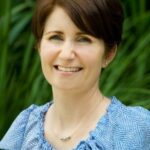

Sue Branford
Rebecca Donkin
Elizabeth Duncan
Professor Sue Branford is the Head of the Leukaemia Unit in the Department of Genetics and Molecular Pathology at SA Pathology and the Centre for Cancer Biology. She was a contributor to international collaborative initiatives that established guidelines and recommendations for producing reliable molecular data for patients with chronic myeloid leukaemia. Her research is focused on understanding the factors that predict for response to therapy and the mechanisms of drug resistance. Dr Branford was awarded the 2021 International Chronic Myeloid Leukaemia Foundation Rowley Prize for significant contribution to the understanding of the biology of chronic myeloid leukaemia.
Dr Donkin has an AIMS accredited Degree of Biomedical Science from the University of South Australia and a PhD from The University of Adelaide. Rebecca has over 10+ years experience in diagnostic histopathology laboratories before finding her passion for teaching, completing a Graduate Certificate in Education (Higher Education) from the University of Adelaide and more recently has been awarded Senior Fellow of the Higher Education Academy.
Dr Elizabeth Duncan is the Principal Scientist for Haemostasis at SA Pathology, Adelaide, SA. In this role she has oversight of the scientific quality of routine and specialised haemostasis tests across the SA Pathology network. This offers many challenges as advances and changes continually occur in the haemostasis discipline including monitoring of new therapies, introduction of new tests and applied research. Elizabeth has a particular interest is the diagnosis of bleeding disorders, including Haemophilia, von Willebrand’s Disease and rare disorders such as FXIII deficiency.
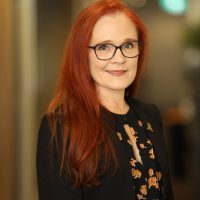
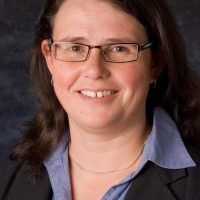
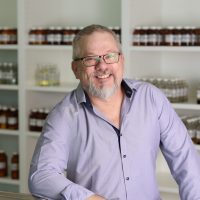
Vanessa Tyrrell
Morgyn Warner
Hamish Scott
Ness is Head of the Clinical Translation Research Division, and Program Director of the Zero Childhood Cancer National Precision Medicine Program at Children’s Cancer Institute, with accountability for establishing and sustaining the Program, ensuring efficient, effective, and medically responsible delivery of all aspects of the program, and building it into a sustainable permanent national precision medicine platform supporting research driven clinical care in the long term.
Morgyn Warner is Clinical Director of Microbiology and Infectious Diseases at SA Pathology and an infectious diseases physician at the Royal Adelaide South Australia. She is the chair of the South Australian expert Group on Antimicrobial Resistance (SAGAAR) and a member and past chair of the Australian Commission on Safety and Quality in Health Care’s Antimicrobial Stewardship Advisory Committee. Her clinical interests are in antimicrobial resistance, mycobacterial infections, antimicrobial stewardship and viral hepatitis. Her research interests include applications of bacteriophage therapy, Helicobacter pylori resistance, optimisation of dosing of antimicrobials, antimicrobial stewardship, and the human and environmental microbiome in relation to multi-resistant bacteria transmission and infection.
Prof. Scott PhD, FFSc (RCPA), FAHMS is Head of Department of Genetics and Molecular Pathology, SA Pathology and Co-director, ACRF Cancer Genomics Facility, Centre for Cancer Biology. Prof. Scott has transformed their department from being largely diagnostic to being a dynamic academic/diagnostic department integrated with basic and clinical research (>100 people) including 35 full-time research personnel The department is active in student (science and medical) placements, training (PhDs, registrars, overseas post-docs) and clinical trials. Prof. Scott’s passion is translational research, linking research to diagnostics and clinical translation, and has been embedded within diagnostic units for all but 10 of their 38 year laboratory career.

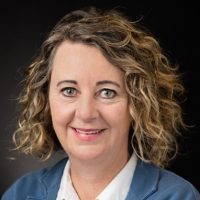
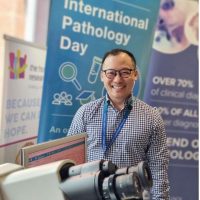
Ian Cassady
Maria Fuller
Cuong Pham
Dr Ian Cassady graduated with a PhD in Biochemistry from the University of Adelaide and worked as Biochemistry Senior Teaching Fellow. Dr Cassady subsequently worked as Senior Research Fellow at the Institute for Molecular Bioscience, University of Queensland with an appointment in the School of Molecular and Microbial Sciences. From 2004-08, Dr Cassady was Program Leader in “Periprosthetic Osteolysis” in the Cooperative Research Centre for Chronic Inflammatory Diseases. From 2010-2012 he held an academic appointment in Molecular and Cellular Biology at the University of New England. In 2013, he took up an academic appointment in the School of Medical Sciences at Griffith University convening Clinical Biochemistry and Clinical Placement in the Medical Laboratory Science program. Dr Cassady’s research has centred on bone cell biology in the context of bone disease and repair with an H-Index of 28. He has been the Director of the Griffith University Master of Medical Research program since 2019.
Professor Maria Fuller is a Clinical Scientist specialising in biochemical genetics and leads the National Referral Laboratory within the state-wide public pathology service in South Australia (SA Pathology). The laboratory provides a national diagnostic service for lysosomal disorders and has a long-standing interest in improving the efficiency of biochemical diagnosis. Maria has a conjoint academic appointment with the University of Adelaide, where she is a research leader at the Robinson Research Institute, and enjoys supervising post-graduate students as well as hosting clinical placements. She has published over 130 articles in the scientific and medical literature and seven book chapters.
I have worked in pathology for over 25 years with previous experience as Medical Scientist in Chemical Pathology, Core Laboratory, and Coagulation at Adelaide Women’s and Children’s Hospital; and then as Supervising Medical Scientist/Haematology Scientific Manager at Royal Adelaide Hospital. Currently Principal Scientist in Haematology. Responsibilities include providing scientific and quality oversight and direction for haematology directorate across SA Pathology, and involved training Haematology Registrars. My interests include the advancement of digital technology and artificial intelligence in Haematology, and being part of a multidiscipline team that provides reproductive risk assessments from a haemoglobinopathy perspective.
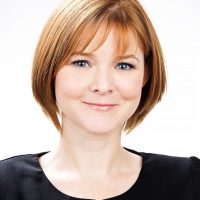
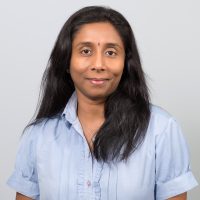

Anastazia Keegan
Lakshmi Nath
Khoa LAM
Dr Anastazia Keegan is a Consultant Clinical and Laboratory Haematologist with expertise in Transfusion Medicine and Womens’ Health Haematology. She is Head of Department, Haematology at PathWest Laboratory Medicine and A/Deputy Director of Clinical Services at King Edward Memorial Hospital in Perth, Western Australia. Dr Keegan is the President of the ANZSBT, Chair of the RCPA QAP Transfusion Advisory Committee and the haematologist on the NBA Patient Blood Management Guideline for Adult patients with Critical Bleeding. Dr Keegan is the Australian Coordinating Principal Investigator for the CHIlled Platelet (CHIPS) Study which aims to understand the haemostatic efficacy of cold-stored platelets in bleeding patients undergoing complex cardiothoracic surgeries. She is currently undertaking a Master of Science (Research) to understand the viscoelastic properties of cold-stored platelets using novel viscoelastic haemostatic assays in an in-vitro model designed to replicate critical bleeding.
Dr Lakshmi Nath completed her post-doctorate study in clinical and laboratory haematology from Christian Medical College, Vellore, India in 2005 and also became a Fellow of the Royal College of Pathologists of Australasia in 2008, after training at Peter MacCallum Cancer Centre, Royal Melbourne Hospital, Melbourne Pathology and then the Australian Red Cross blood service (Life blood) in Melbourne. She has worked as Consultant Haematologist and Specialist Transfusion consultant for Melbourne health covering Royal Melbourne, Western and Sunshine Hospital.
She is currently the Clinical Director of Haematology, Transfusion Medicine and Hospital laboratories, Clinpath Pathology. During her time here, Dr Nath has set up the successful Massive Transfusion protocol called ‘CODE GREEN’ in all the major private hospitals in Adelaide and provide on-site advice and support with massive transfusion and peri-operative management of blood loss.
She has established the first private Flow Cytometry laboratory and her lab provides the only private bone marrow services in Adelaide. Dr Nath has also become an associate fellow of Royal Australasian College of Medical Administrators, after completing her training in 2012.
Her areas of special interest include consultative haematology including flow cytometry, haemostasis, haemoglobinopathy and transfusion medicine.
Khoa Lam is the Senior Medical Scientist of the South Australian Maternal Serum Antenatal Screening (SAMSAS) program, SA Pathology. He holds a BSc (Biotech) in 2008 from the University of South Australia and later completed his honours degree from the University of Adelaide within the discipline of Obstetrics and Gynaecology. Currently, he is undertaking his higher degree by research in the field of lipidomics and prenatal screening. In his current role he is directly responsible for providing antenatal and newborn screening services to the patients of South Australia, Tasmania and Northern Territory with more than 15years experience. Khoa also has an interest in population statistic as he is directly responsible for the complex algorithms for the SAMSAS antenatal and newborn screening programs.
MEETING
INFORMATION
AIMS
National Scientific Meeting
21 – 23 August 2024
Adelaide Convention Centre
MEETING
ORGANISERS
12 Stirling Street
Thebarton SA 5031
Contact Information
conference@aomevents.com
(08) 8125 2200
